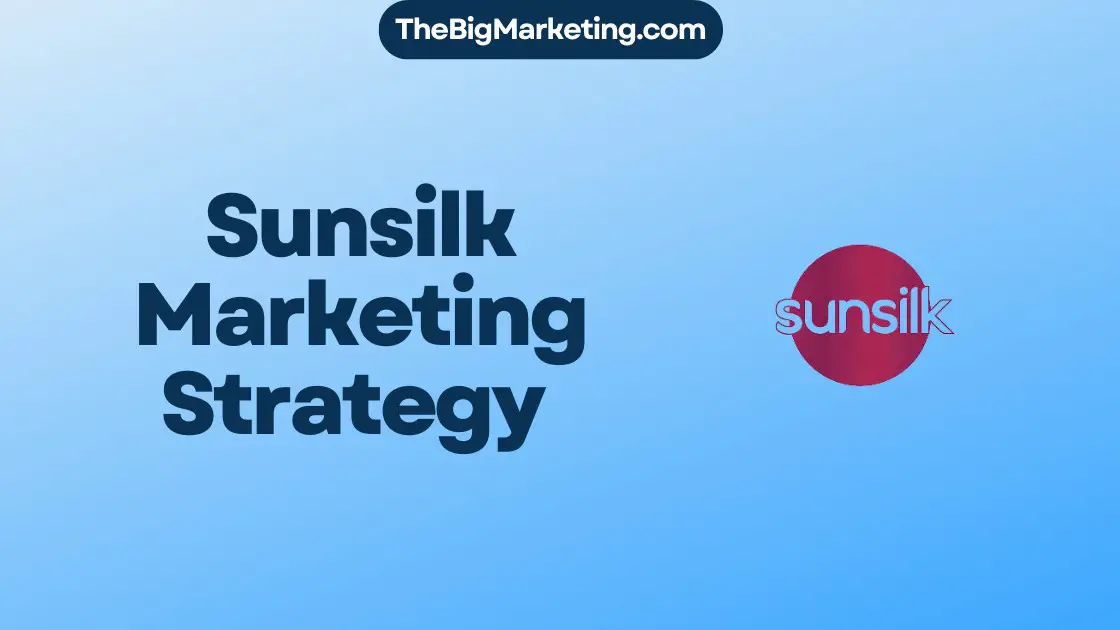Marketing procurement is a crucial process for businesses that involves the acquisition of goods and services through a structured, competitive bidding process. By implementing effective marketing procurement strategies, businesses can optimize their marketing spend, gain access to qualified suppliers, and enhance their overall marketing performance.
Marketing procurement plays a key role in helping businesses secure the best deals and avoid expensive mistakes. It facilitates the identification of qualified suppliers who can provide high-quality products and services. Moreover, marketing procurement enables businesses to build strong relationships with suppliers, fostering effective communication and collaboration.
Effective marketing procurement can significantly impact a company’s bottom line. By reducing costs and improving efficiency, businesses can allocate their resources effectively and achieve higher levels of customer satisfaction. Additionally, marketing procurement promotes innovation by encouraging the exploration of new ideas and approaches.
From the procurement of marketing services to the implementation of advanced software solutions, marketing procurement encompasses a wide range of activities that contribute to a company’s overall marketing success. By understanding the fundamentals of marketing procurement and implementing best practices, businesses can navigate the complex landscape of marketing spend management and drive superior results.
Key Takeaways:
- Marketing procurement involves the acquisition of goods and services through a competitive bidding process.
- Effective marketing procurement can help businesses secure the best deals, find qualified suppliers, and avoid costly mistakes.
- Marketing procurement reduces costs, improves customer satisfaction, and promotes innovation.
- Implementing marketing procurement best practices is essential for optimizing marketing spend and achieving business success.
- Understanding the fundamentals of marketing procurement and following industry trends can help businesses stay competitive in the rapidly evolving marketing landscape.
An Introduction to Marketing Spend Management
Marketing spend management is a critical component of effective marketing operations. It involves managing and optimizing the indirect spend associated with marketing activities. From strategic consultation to advertising, digital services, market research, branding, public relations, and marketing automation, marketing spend management covers a wide range of categories. By effectively managing these expenses, businesses can ensure maximum return on their marketing investments.
However, managing marketing spend can be a complex endeavor. It involves navigating through various challenges, such as the heavy reliance on external agencies, keeping up with constant technological changes, enduring long planning cycles, and prioritizing the development of supplier relationships. These factors make it crucial for businesses to adopt a strategic approach to marketing spend management.
One of the key aspects of marketing spend management is the close collaboration between the marketing and procurement teams. By working together, they can optimize the allocation of resources, streamline procurement processes, and enhance cost efficiency. The marketing team’s insights into the market and customer needs, combined with the procurement team’s expertise in supplier management and negotiation, are essential for achieving successful marketing spend outcomes.
To illustrate the significance of marketing spend management, consider the following table:
| Category | Challenges | Benefits |
|---|---|---|
| Strategic Consultation | High consulting fees, identifying the right consultant | Strategic insights, improved decision-making |
| Advertising | Balancing creativity and cost-effectiveness, identifying the right channels | Increased brand visibility, target audience reach |
| Digital Services | Technological advancements, managing multiple digital platforms | Enhanced online presence, improved customer engagement |
| Market Research | Data collection and analysis, market research costs | Market insights, informed decision-making |
| Branding | Consistency across channels, managing brand reputation | Strong brand identity, increased customer loyalty |
| Public Relations | Managing media relationships, crisis management | Positive brand image, effective communication |
| Marketing Automation | Integration challenges, selecting the right automation tools | Streamlined processes, improved efficiency |
This table highlights the challenges and benefits associated with different categories of marketing spend. It emphasizes the importance of effectively managing marketing spend to maximize the benefits and overcome the challenges.
In the following sections, we will explore various strategies and best practices for managing marketing spend. Stay tuned!
The Unique Aspects of the Marketing Category Spend
The marketing category spend presents distinctive characteristics that set it apart from other procurement categories. It encompasses a variety of elements, including heavy reliance on external agencies, constant technological and competency changes, long planning cycles, and a strong emphasis on supplier relationship development. These unique aspects require specialized attention and strategic considerations to optimize the marketing spend and ensure successful outcomes.
Heavy Reliance on External Agencies
In the marketing realm, organizations often partner with external agencies to execute various initiatives, such as advertising campaigns, creative design, digital marketing, and more. These agency partnerships account for a significant portion of the marketing budget and play a vital role in delivering effective marketing strategies. Procurement professionals must understand the agency landscape, evaluate options, negotiate contracts, and steer performance to maximize the value derived from these partnerships.
Constant Technological and Competency Changes
Technology is ever-evolving in the marketing industry, introducing new opportunities and challenges. With the continuous development of digital marketing tools, automation platforms, social media channels, and data analytics capabilities, marketers need to stay up-to-date with the latest trends and advancements. Procurement teams must closely collaborate with marketing to address the technology needs, identify suitable providers, and ensure the acquired technologies align with the organization’s marketing strategy.
Long Planning Cycles
The marketing planning process often involves long lead times, especially for campaigns and product launches. Marketing teams engage in extensive research, market analysis, creative development, and coordination with various stakeholders. Procurement professionals need to align their strategies with the marketing planning cycles, ensuring timely supplier engagement, contract negotiations, and delivery of goods and services to support the marketing initiatives effectively.
Focus on Supplier Relationship Development
Building strong relationships with marketing suppliers is crucial for driving successful outcomes. To foster collaboration, procurement teams should invest time and effort in understanding the unique requirements of marketing suppliers and their specific capabilities. This collaborative approach enables both parties to work together toward shared goals, driving innovation, flexibility, and long-term success.
In summary, the marketing category spend encompasses unique aspects that require careful attention and strategic management. By acknowledging the heavy reliance on external agencies, staying abreast of technological advancements, understanding the long planning cycles, and prioritizing supplier relationship development, procurement professionals can effectively optimize the marketing spend to drive better results for their organizations.
Typical Marketing Procurement Spend Management Strategies
Effective management of marketing procurement spend is crucial for companies to optimize their resources and achieve their marketing goals. There are different strategies that organizations can employ to ensure that their marketing procurement spend is well-managed and aligned with their overall objectives. Below are some typical strategies businesses can consider:
1. Partnering with a Full-Service Agency
One strategy is to partner with a full-service agency that can provide end-to-end support for all marketing activities. This approach allows companies to consolidate their marketing procurement efforts under one agency, simplifying the management process and ensuring consistency across all marketing initiatives. Working with a full-service agency can also lead to cost savings and operational efficiencies by leveraging the agency’s expertise and resources.
2. Contracting with Multiple Service Providers
Another strategy is to contract with multiple service providers for specific marketing services. This approach gives organizations the flexibility to choose the best providers for each service category based on their expertise and capabilities. It allows companies to tap into the specialized knowledge of different agencies and adapt to changing marketing needs. However, managing multiple contracts and relationships may pose challenges in terms of coordination and consistency.
3. Using a Hybrid Model
A hybrid model combines elements of both in-house and outsourced marketing procurement. Companies can maintain an in-house team for core marketing functions while outsourcing certain specialized services to external providers. This approach provides organizations with greater control and visibility over their marketing activities while leveraging external expertise and resources when needed. However, it requires effective coordination and collaboration between internal and external teams.
4. Managing Marketing Functions In-House
Some companies choose to manage their marketing functions entirely in-house. This strategy allows for complete control over all aspects of marketing procurement and ensures alignment with internal processes and goals. Although it requires substantial investment in talent and resources, managing marketing functions in-house can provide organizations with a deeper understanding of their customers and markets. It also allows for more direct control over marketing spend and decision-making.
Choosing the most suitable strategy depends on various factors such as organizational goals, available resources, industry dynamics, and the complexity of marketing activities. It is essential for companies to evaluate their unique requirements and consider the benefits and considerations associated with each strategy.
| Strategy | Benefits | Considerations |
|---|---|---|
| Partnering with a Full-Service Agency |
|
|
| Contracting with Multiple Service Providers |
|
|
| Using a Hybrid Model |
|
|
| Managing Marketing Functions In-House |
|
|
How Procurement Can Improve Marketing Spend
Effective procurement practices play a crucial role in optimizing marketing spend and delivering better results for businesses. By investing time in understanding marketing issues, building strong internal stakeholder relationships, and getting to know suppliers, procurement professionals can make a significant impact on marketing spend efficiency.
One key aspect of improving marketing spend is having a genuine interest in marketing and the commercial side of the business. Procurement professionals who take the time to understand the unique challenges and goals of marketing departments can better align their efforts and strategies for maximum impact.
Procurement also provides valuable insights into expenditure and budgeting. By closely analyzing marketing spend data, procurement teams can identify areas for cost optimization and make informed decisions about allocating resources. This data-driven approach ensures that marketing budgets are effectively utilized and aligned with business objectives.
Another critical role of procurement in improving marketing spend is supplier relationship management. By fostering strong partnerships with suppliers, procurement professionals can negotiate favorable contracts, improve communication, and resolve issues efficiently. These efforts not only result in cost savings but also lead to better collaboration and quality improvements in marketing services.
Furthermore, procurement can contribute to measuring marketing ROI, a crucial aspect of optimizing marketing spend. By collaborating closely with marketing teams, procurement can establish key performance indicators (KPIs) and implement tracking mechanisms to measure the success and effectiveness of marketing campaigns. This data-driven evaluation allows for continuous improvement and better decision-making when allocating marketing resources.
In summary, procurement’s active involvement in marketing spend management can have a significant impact on a business’s overall marketing performance. By understanding marketing issues, building strong relationships, providing data-driven insights, and measuring marketing ROI, procurement professionals can optimize spending and deliver better results, ultimately driving business success.
10 Traits of a Good Procurement-Marketing Relationship
A successful procurement-marketing relationship is essential for businesses aiming to streamline their marketing operations and maximize results. To foster a strong and collaborative partnership between procurement and marketing, the following traits are crucial:
- Shared Business Metrics: Aligning goals and metrics between procurement and marketing ensures that both departments are working towards the same objectives.
- Open Communication: Maintaining transparent and effective communication channels facilitates collaboration, problem-solving, and mutual understanding.
- Engagement between Agency Senior Leads and Procurement: Involving senior leads from agencies in the procurement process helps build trust, ensure accountability, and align strategic objectives.
- Integration within the Leadership Team: Procurement should be an active part of the marketing leadership team, contributing insights, expertise, and guidance in decision-making processes.
- Collaboration with Finance: Working closely with finance teams enables procurement to better understand budget constraints, financial implications, and cost optimization opportunities.
- Reporting Results: Regularly sharing performance metrics, cost savings, and other relevant data reinforces the value of procurement and demonstrates the impact of their efforts.
- Delivery of Business Solutions and Innovation: Procurement should proactively seek out innovative solutions that drive efficiency, enhance marketing capabilities, and contribute to overall business success.
- Honest Feedback between Marketing and Procurement: Establishing a culture of constructive feedback fosters continuous improvement and strengthens the partnership.
- Joint Training: Providing training and knowledge-sharing opportunities that involve both procurement and marketing teams helps build a common understanding of goals, processes, and challenges.
- Recognition of the Procurement Function as Valuable for Career Growth: Acknowledging procurement’s role as a strategic driver encourages talent retention, professional development, and long-term commitment to the procurement-marketing relationship.
A strong procurement-marketing relationship not only reduces costs but also enhances the quality of agency relationships, promotes strategic decision-making, and drives overall marketing effectiveness.
Marketing Procurement vs. Standard Procurement
In the world of procurement, there are different approaches depending on the specific needs of a business. Marketing procurement and standard procurement are two distinct strategies designed for different purposes.
Marketing procurement focuses on acquiring goods and services specifically for marketing and advertising activities. It requires a deeper understanding of the market, customer needs, and industry trends. Marketing procurement professionals collaborate closely with marketing teams to ensure the right resources are obtained to generate sales and improve the effectiveness of marketing efforts.
Standard procurement, on the other hand, is focused on acquiring goods and services for general business operations. It covers areas such as IT, facility management, office supplies, and other non-marketing related needs. Standard procurement aims to keep the business running smoothly by sourcing the necessary resources to support daily operations.
The major difference between marketing procurement and standard procurement lies in the strategic goals and skills required. Marketing procurement professionals need to have a strong understanding of marketing strategies, consumer behavior, and negotiation skills to achieve the desired outcomes. Standard procurement professionals, on the other hand, focus on operational efficiency, cost savings, and supplier management.
Marketing procurement plays a critical role in supporting marketing objectives and driving business growth. By investing in the right resources and suppliers, businesses can effectively reach their target audience, maximize their return on investment (ROI), and gain a competitive edge in the market.
Key Differences:
| Marketing Procurement | Standard Procurement |
|---|---|
| Acquiring goods and services for marketing and advertising activities | Acquiring goods and services for general business operations |
| Requires a deep understanding of the market and customer needs | Focuses on operational efficiency and cost savings |
| Aims to generate sales and improve marketing effectiveness | Aims to keep the business running smoothly |
| Requires negotiation skills and knowledge of marketing strategies | Focuses on supplier management and cost control |
Benefits and Challenges of Managing Marketing Procurement
Managing marketing procurement offers numerous benefits to businesses, playing a pivotal role in optimizing resources and driving results. However, it also presents various challenges that organizations must navigate to achieve success in their procurement processes. Let’s explore both the benefits and challenges in more detail:
Benefits of Marketing Procurement
- Minimizing Waste: Implementing effective marketing procurement strategies helps businesses minimize unnecessary spending, ensuring resources are allocated efficiently.
- Reducing Risk: By carefully selecting suppliers and negotiating favorable contracts, marketing procurement mitigates risks associated with poor quality services or products.
- Making Efficient Choices: The procurement process enables companies to make informed purchasing decisions that align with their marketing goals and strategies.
- Improving Customer Satisfaction: Sourcing high-quality goods and services through marketing procurement contributes to the overall satisfaction of customers, enhancing brand reputation.
- Promoting Innovation: Engaging with innovative suppliers and staying abreast of market trends fosters creativity and drives innovation within marketing initiatives.
Now, let’s turn our attention to the challenges that organizations face when managing marketing procurement:
Challenges of Marketing Procurement
- Need for Quick Decision-Making: Marketing procurement often operates in a fast-paced environment, requiring teams to make rapid decisions to keep up with dynamic market trends.
- Keeping Up with Technology Advancements: The ever-evolving nature of marketing technologies necessitates constant adaptation and staying informed about emerging solutions.
- Identifying the Best Suppliers: Finding reliable and competent suppliers who can meet the unique requirements of marketing procurement can be a daunting task.
- Lack of Standardization: Marketing procurement practices and metrics can vary across different industries and organizations, creating challenges in establishing standardized processes.
- Difficulty Measuring ROI: Determining the return on investment (ROI) for marketing procurement activities can be challenging due to the complex nature of marketing initiatives and the range of contributing factors.
Overcoming these challenges requires implementing efficient procurement processes, setting clear objectives, and fostering continuous improvement in marketing procurement practices.
Now, let’s take a closer look at the benefits and challenges of managing marketing procurement through a visually engaging table.
| Benefits of Managing Marketing Procurement | Challenges of Managing Marketing Procurement |
|---|---|
| Minimizing Waste | Need for Quick Decision-Making |
| Reducing Risk | Keeping Up with Technology Advancements |
| Making Efficient Choices | Identifying the Best Suppliers |
| Improving Customer Satisfaction | Lack of Standardization |
| Promoting Innovation | Difficulty Measuring ROI |
The table above summarizes the benefits and challenges of managing marketing procurement. It provides a clear visual representation of the key aspects associated with marketing procurement management.
Now that we have explored the benefits and challenges of managing marketing procurement, let’s move on to the final section of this article.
Conclusion
Marketing procurement plays a crucial role in ensuring the efficient allocation of resources for marketing activities. By implementing effective strategies and following best practices, businesses can make cost-effective decisions and achieve better results.
One of the key benefits of marketing procurement is its ability to improve supplier relationships. By engaging with suppliers strategically and fostering strong partnerships, companies can access quality goods and services at competitive prices. This not only reduces costs but also helps in driving better outcomes.
Furthermore, understanding the fundamentals of marketing procurement is essential for optimizing marketing spend. By analyzing data, evaluating performance, and implementing continuous improvement initiatives, companies can make informed decisions that align with their goals and market trends. This allows businesses to stay competitive, drive business success, and achieve long-term growth.




